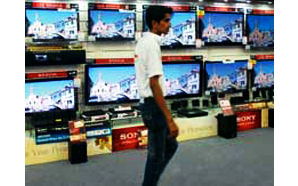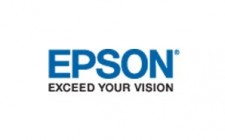Electronics, consumer durables get Budget boost
By Dinesh Jain | Vjmedia Works | March 02, 2015
Companies say duty rationalisation could result in savings, which could be passed on to consumers
 The Rs 50,000-crore consumer durables and electronics industry was unequivocal in its praise for this year's Union Budget. The government rationalised duty structures in the Budget, responding to long-standing demands of companies operating in the space. In the exercise, domestic manufacturing is expected to get a boost.
The Rs 50,000-crore consumer durables and electronics industry was unequivocal in its praise for this year's Union Budget. The government rationalised duty structures in the Budget, responding to long-standing demands of companies operating in the space. In the exercise, domestic manufacturing is expected to get a boost."The reduction of customs duty on 22 items (which go into the manufacture of various products including TVs, refrigerators, washing machines, air conditioners and microwaves) as well as a reduction in tax on royalty will encourage indigenous manufacturing and technology proliferation," said Manish Sharma, MD, Panasonic, India & South Asia, and current president, Consumer Electronics and Appliances Manufacturers' Association (CEAMA).
According to CEAMA, almost 40 per cent of goods sold in the consumer durables and electronics market are imported. Those that are made here are basically assembled using imported parts. While this is not expected to change overnight, companies say, the government's efforts are laudable, since it seems committed to promote its 'Make in India' drive.
Anirudh Dhoot, director, Videocon Industries, and past president of CEAMA, says, "For long, the industry felt neglected because measures were simply not adequate. What this Budget has done is changed that perception. There have been definite measures taken in this Budget, which will create the environment or climate for manufacturing. That is the key."
The government has specifically targeted LED TVs, one of the largest consumer electronic categories in the country, reducing customs duty on organic or OLEDs from 10 per cent to zero. This, says Dhoot, was something that TV manufacturers were demanding, since OLEDs are expected to gain traction in the coming months.
Dhoot says customs duty on backlights used in LEDs has also been abolished - from 10 per cent to zero. "Bulk of the components in LEDs is imported. By reducing customs duty, assembling costs will reduce. While manufacturers stand to gain from this, consumers benefit because we could pass these savings to them," Dhoot says.
The appliances segment too got a favourable push. Kamal Nandi, business head and executive vice-president, Godrej Appliances, says, "Of the 22 items that see customs duty reduction, there are two that appliance manufacturers were demanding. This includes magnetrons, a key input used in microwave ovens, and components used in the manufacture of refrigerator compressors. While we are yet to assess the impact of this on our business, at the outset these steps are welcome."
Even LED light and lamp makers have a reason to cheer because excise on components such as LED drivers and metal core printed circuit boards or MCPCBs have been reduced from 12 per cent to six per cent. The move comes in the wake of the government's effort to push energy conservation in the country. In January, Prime Minister Narendra Modi had launched a scheme for LED bulb distribution under the domestic efficient lighting programme in Delhi as well as a national programme for LED-based home and street lighting.
Advertisement








